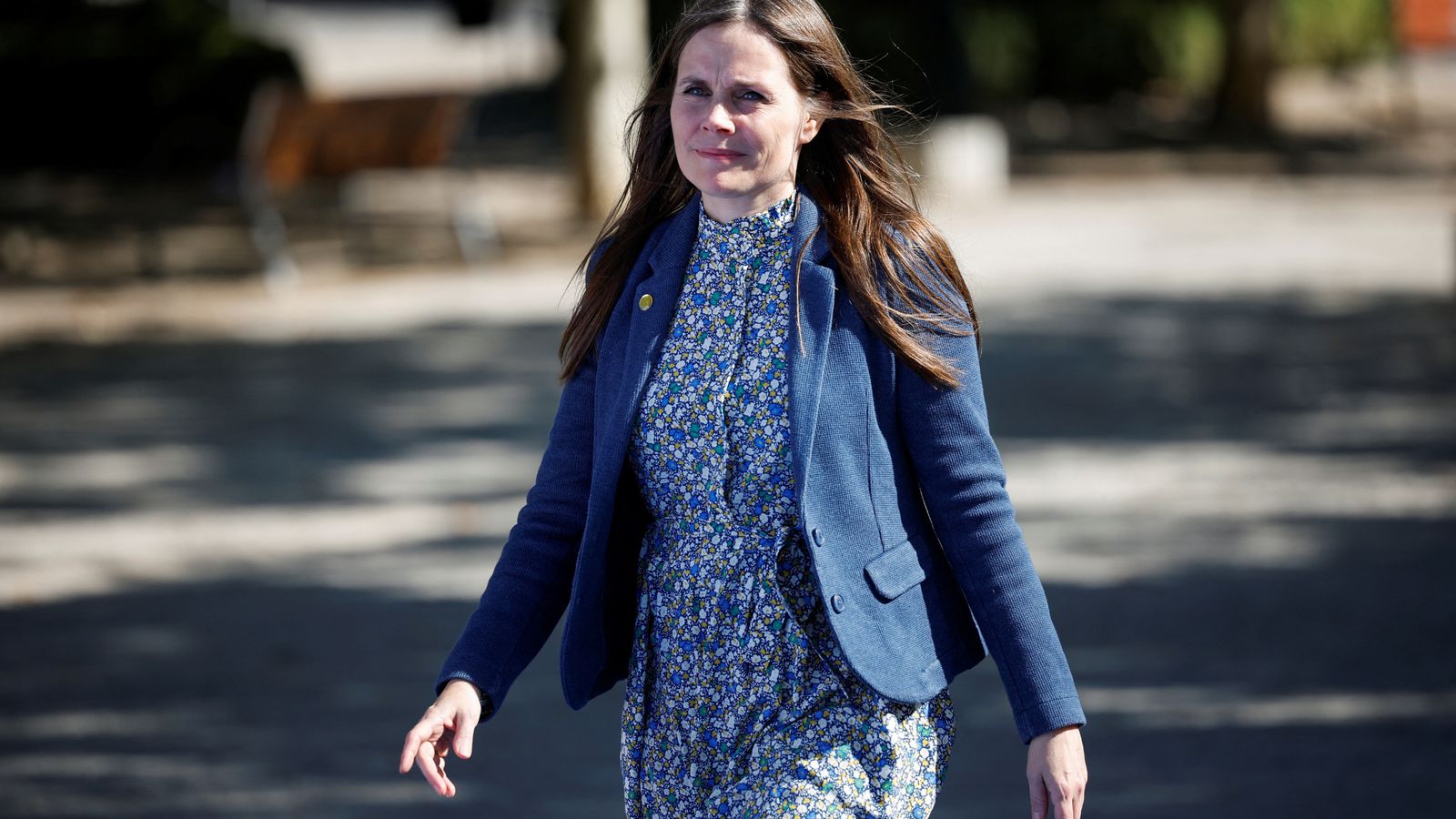Iceland’s prime minister is joining tens of thousands of women in a strike for equal pay today.
Katrín Jakobsdóttir had earlier told Icelandic media that she planned to take part in the industrial action, organised under the slogan ‘Do you call this equality?’, and not come to work.
The strike, which is known as the “Kvennafrí” or “Women’s Day Off”, hopes to raise awareness about “systemic” pay discrimination and gender-based violence.
Ms Jakobsdóttir told the mbl.is website: “I will not work this day, as I expect all the women [in cabinet] will do as well.
“I have decided not to have a cabinet meeting tomorrow and in Alþingi [Iceland’s parliament] only male ministers will answer impromptu questions. We show solidarity in this way.”
Organisers said on the campaign’s official website: “On 24 October, all women in Iceland, including immigrant women, are encouraged to stop work, both paid and unpaid [including household chores].
“For the whole day, women (and non-binary people) will strike, to demonstrate the importance of their contribution to society.”
Gender equality charity Chwarae Teg to close after ‘perfect storm’ of financial woes
World Cup: Will the ambition of equal pay be realised?
Gender pay gap narrowing – but women still paid 89p for every £1 a man earns
Read more on Sky News:
British cargo ship sinks off German coast – several missing
Off-duty pilot ‘tried to switch off engines mid-flight’
Hamas has six British hostages, UK govt fears
The event comes nearly 50 years after Iceland organised a full-day women’s strike in 1975, when 90% of Icelandic women refused to work as part of Kvennafrí.
The original strike is credited with leading to important changes in Iceland, including the election of the world’s first female president of a country.
Some of those who took part in the 1975 action helped organise today’s strike and say the core demand for women’s work to be valued remains unmet.
Iceland is seen as one of the most progressive in the world in terms of gender equality and has topped the World Economic Forum’s gender gap index 14 years in a row.
No nation has achieved full gender equality, according to the index, but Iceland has closed at least 91% of its gap and is the only country to have passed 90%.
However, women in some jobs there still earn at least 20% less than their male colleagues, Statistics Iceland has said.
A study by the University of Iceland also found 40% of Icelandic women experience gender-based and sexual violence in their lifetime.
Be the first to get Breaking News
Install the Sky News app for free
Strike organiser Freyja Steingrímsdóttir, of the Icelandic Federation for Public Workers, said: “We’re seeking to bring attention to the fact that we’re called an equality paradise, but there are still gender disparities and urgent need for action.
“Female-led professions such as healthcare services and childcare are still undervalued and much lower paid.”
Industries where women make up the majority of workers, like healthcare and education, will be especially affected.
The first Women’s Day Off took place on 24 October, 1975 , when 90% of Icelandic women stopped work to protest gender inequality and it has been repeated in 1985, 2005, 2010, 2016 and 2018.







